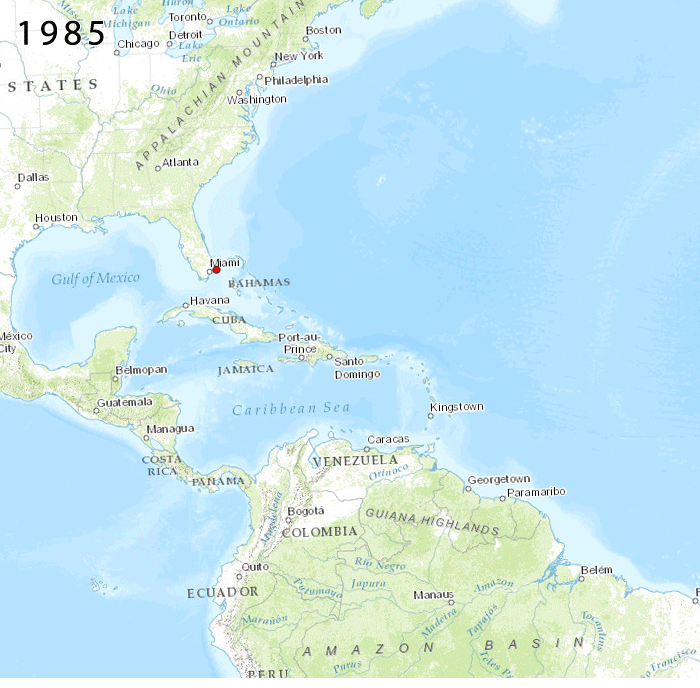The invasive fish may be beautiful, but it’s not a friend to the marine ecosystem
By Marcia Biggs
The annual Lionfish Safari sponsored by Pinellas County-based Reef Monitoring, Inc. is changing venues this year, but organizer Sean Patterson still expects it to be one of the largest lionfish hunts in the state.
Set for September 7-10, the Fourth Annual Lionfish Safari and Festival will be held at North Straub Park in downtown St. Petersburg (it was formerly held at Guy Harvey Tradewinds Resort on St. Pete Beach). Divers can head out to bag fish as early as Thursday, and turn in their catch Friday night, Saturday and Sunday at Straub Park.
“There are no boundaries and no time limit,” said Patterson. “You don’t even need a fishing license. The only requirement is you fish in Florida waters and you must deliver your entries on ice and in good condition.”
Fish should not be gutted, as scientists will be dissecting and studying them for research. Fish will be weighed and measured for empirical data and stomach contents will be removed and analyzed to study the diets. Divers can turn in their catch early to earn points toward winning seven Zookeeper lionfish containers, says Patterson. Cash prizes will be rewarded for most fish, biggest fish and smallest fish. Last year’s event resulted in more than 1500 lionfish being turned in, with one ambitious diver that removed more than 500 lionfish from our waters.

The exotic and proliferating lionfish has invaded the waters in the Gulf of Mexico, the Atlantic Coast and the Caribbean. (For a mind-blowing look at its rapid population growth since first reported in 1986 in Miami, check out the animated map at http://lionfish.gcfi.org/index.php) Rarely caught on hook-and-line, the most effective methods of harvesting lionfish are spearing and using a hand-held net. Researchers across the state are encouraging divers to capture the fish year-round. In fact, the Florida Fish and Wildlife Conservation Commission has specifically excluded lionfish from the saltwater license so they can be caught at any time without any bag limit. (See more from National Geographic at https://www.youtube.com/watch?v=GzaeYzAC8Ro)
The invasion of the orange wing-tipped Indo-Pacific lionfish into the Gulf of Mexico, especially off the Panhandle, has become an overwhelming problem, says Chris Stallings, a marine biologist and associate professor at the University of South Florida College of Marine Science. Stallings, who studies lionfish biology, ecology and management, says the life-cycle of the fish, along with its voracious appetite and no natural predators is leading to a population explosion that is tough to control – and escalating. The fish can easily consume many species of small fish and larval nurseries.
“An adult female can spawn every three to four days and have anywhere from 15 to 30,000 eggs,” says Stallings. “This means one fish can produce over 20 million eggs in a 10-year life span. The larvae travel on currents which leads to an expanded range and quick population growth. Some studies show population growth can be 60 to 70 percent annually.”
HOW TO REGISTER
Complete information on the Lionfish Safari and registration can be found at https://www.reefmonitoring.org/lionfish-safari
Reef Monitoring’s Lionfish Safari is one of more than 25 lionfish tournaments and derbies that take place annually around Florida. To find a listing of statewide lionfish events, go to http://myfwc.com/fishing/saltwater/recreational/lionfish/events/
WHERE TO FIND LIONFISH
They are mainly found at deeper depths, from 30 to 100 feet below the surface, and have been reported up to 1,000 feet. Since the Gulf floor is a broad, shallow, sloping shelf, divers locally will have more luck the farther out they go.
IF YOU GET STUNG BY A LIONFISH
Use care when handling lionfish, as they have up to 18 venomous spines on their fins that can cause painful stings, swelling, blistering, dizziness, necrosis and even temporary paralysis. If stung, immerse the wound in hot water for 30 to 90 minutes and seek medical attention, if necessary.
MORE INFORMATION
So far in 2017, Florida Fish and Wildlife Conservation Commission reports a total of 20,887 lionfish harvested in state waters (before the Lionfish Safari). Over 1500 lionfish were captured and turned as part of last year’s Lionfish Safari, with the winning diver turning in more than 500 fish.
More information on lionfish can be found at http://myfwc.com/fishing/saltwater/recreational/lionfish/
Marcia Biggs is a freelance writer based in Safety Harbor FL
Originally published August 2017
